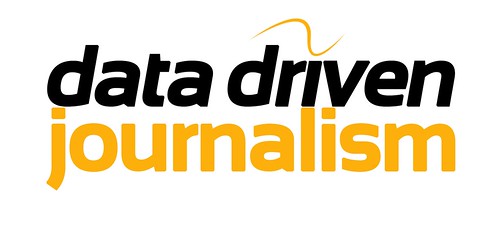The following guest post is from Lilliana Bounegru at the European Journalism Centre (EJC).

The EJC in collaboration with Mirko Lorenz at Deutshe Welle have created a survey that aims to gather the opinion of journalists on the emerging practice of data-driven journalism and understand their training needs in this field.
Data has always been used as a source for reporting especially by investigative journalists and will play an increasingly important role in journalism in the future. Data-driven investigative operations in the past however involved a lot of resources and time. With the increasing pressure on newsrooms to be more time and cost efficient, they remained a marginal practice.
Why data-driven journalism?
Data-driven journalism enables journalists and media outlets to produce value and revenues without requiring the large investments of time and resources that data-driven investigative operations required in the past, thus holding the potential to more evenly distribute this practice across newsrooms. This is partly due to the increasing availability of open data catalogues which reduces the time required for journalists to get their hands on valuable data, and of free and open tools for data interrogation and visualization that lend themselves to non-expert use, which make data-driven reporting easier to undertake. The most notable data journalism operation in Europe, the Guardian Data Blog, works mainly with Excel or Google spreadsheets and free tools for data interrogation and visualization, and was until not long ago a one-man show, using the potential of crowdsourcing for data analysis at times.
How to understand what journalists need?
To enable more journalists and newsrooms across Europe to tap into the potential of data-driven journalism, the European Journalism Centre plans to organize a series of trainings this year and in the coming year. To understand what journalists need in order to practice data journalism, we created a survey. The survey has 16 questions asking journalists and others for their opinion on data journalism, aspects of working with data in their newsrooms, and what they are interested in learning.
- We’ve had a good start: in a bit over one week over 80 journalists responded. If you are a journalist we would be grateful if you took 10 minutes of your time to take the survey and help us understand what is useful for journalists in order to organize trainings that fit real needs. To say thank you one of the entries will win a EUR 100 Amazon gift voucher.
The insights from this survey will be made freely available. We would much appreciate also help with tweeting, blogging or forwarding this to relevant people you might know.
If you’re interested in keeping in touch with developments in this area, you may wish to join the EJC’s Data Driven Journalism group and the joint EJC/OKF mailing list on data-driven-journalism. You may also be interested in coming to the data journalism session at OKCon 2011 in Berlin on 30th June – 1st July, where we will present the results of the survey so far!
Liliana Bounegru is a new media researcher at the King’s College London Department of Digital Humanities and the co-founder of Public Data Lab. She is the editor of the Data Journalism Handbook and the Public Data Lab's Field Guide to Fake News.
Previously she was an editor at the School of Data blog and project manager on data journalism at the European Journalism Centre (EJC). Her work at the EJC included coordinating and co-editing The Data Journalism Handbook, coordinating the first edition of the Data Journalism Awards and running trainings and conferences. Liliana holds an MA in New Media and Digital Culture and a Research MA in Media Studies from the University of Amsterdam. She blogs at lilianabounegru.org.









1 thought on “Interested in data-driven journalism?”
Comments are closed.